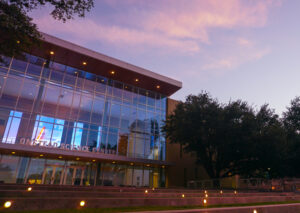
The Conference program is available
Welcome to the website for the 2022 joint Spring meeting of the Texas Section of the American Association of Physics Teachers, American Physical Society, and the Society of Physics Students.
The meeting will be held in person at Abilene Christian University in Abilene, TX on March 10-12, 2022.
Early bird registration at a reduced rate is available until Feb. 25th. Click the register tab to submit an online registration. If you would like to register a group please send an email to Dr. Larry Isenhower at ldi00a@acu.edu
Student Presenter Travel Award
Applications were due Feb. 20th. It is anticipated that about 10 awards will be provided. The awards will be communicated to the winners prior to the start of the meeting, but the award money will be given in person at the conference.
Plenary Speakers
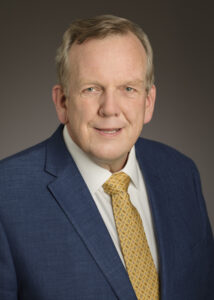
Matthias Grosse Perdekamp – UIUC professor and department head, physics
A Case Study in Nuclear Proliferation - The Iran Nuclear Deal and the Responsibility of Physicists
Matthias Grosse Perdekamp is a nuclear physicist at the University of Illinois.
Abstract: We will start with a brief review of consequences of nuclear war and terrorism and describe the system of arms control treaties that have been put into place to contain this threat over the past 70 years. In the recent past, several arms control agreements have been facing significant challenges. The United States and Russia have ended the Intermediate Nuclear Force Treaty. Failure in the negotiations for an extension of the New START treaty was avoided only at the last moment. The United States has withdrawn from the JCPOA (the “”Iran Nuclear Deal””). Both the United States and Russia have withdrawn from the Open Skies Arms Control Treaty. We will focus on the Iran Nuclear Deal, an agreement that aims to prevent the proliferation of nuclear weapons to Iran. We will discuss the recent history, including the US withdrawal in 2018 and current efforts to re-negotiate the agreement.
About the Speaker: Matthias serves as head of the Department of Physics and as director of the UIUC Program for Arms Control and Domestic and International Security, ACDIS. He explores the Physics of nuclear forces and the structure of the fundamental building blocks of nuclear matter through accelerator-based experiments at European Laboratory for Nuclear and Particle Physics, CERN, in Geneva Switzerland. His laboratory is developing advanced instrumentation for the detection of ionizing radiation. He teaches a longstanding course on Nuclear War and Arms Control as part of the ACDIS security certificate for undergraduate students at UIUC.
Rethinking Nuclear Power: Small systems, big potential
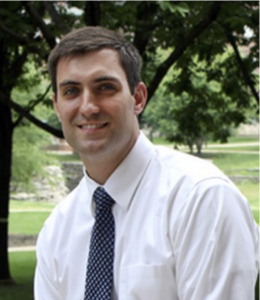
Dr. Caleb Brooks, Associate Professor, UIUC
Dr. Caleb S. Brooks
Abstract: Nuclear microreactors are a new class of nuclear fission technology capable of producing up to roughly 20 MWth depending on design. Beyond their size, the primary distinguishing features over other fission systems is that microreactors are designed to be: factory built, tested, and delivered to site by truck, rail, or ship; plug-and-play with minimal onsite construction or preparation; capable of long operational periods between refueling (10-20 years); and minimal decommissioning required to return the site to greenfield status. Nuclear microreactors are a promising technology to enable a clean, climate conscious, energy future. Fueled by wide bipartisan legislation for advanced nuclear technologies, the Department of Energy (DOE), Department of Defense (DOD), and National Aeronautics and Space Administration (NASA) all have recent and growing programs related to these advanced power systems. The University of Illinois at Urbana-Champaign is preparing to be an early site for microreactor technology as an advanced research and test reactor. The campus deployment focuses on the research, education, and training necessary to see advanced reactor technology become widely deployable, marketable, economic, and ultimately a safe and reliable option for a clean energy future.
About the Speaker: Dr. Caleb Brooks is an associate professor in the Nuclear, Plasma, and Radiological Engineering Department at the University of Illinois Urbana-Champaign. He holds B.S., M.S., and Ph.D. degrees in nuclear engineering from Purdue University and has been a member of the UIUC faculty since 2014. His work is focused on enabling and expanding safe, peaceful uses of nuclear power. Dr. Brooks specializes in thermo-fluid dynamics of nuclear systems and reactor flows, and hybrid energy approaches for existing and future power systems.
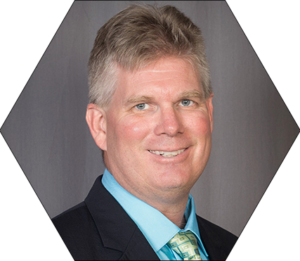
Steven Biegalski, Ph.D., P.E.
Creating future Energy Communities with Advanced Reactors
Steven Biegalski, Ph.D., P.E., Georgia Institute of Technology
Abstract: Advanced nuclear power is the dynamic energy source of future. The energy landscape is changing to flexible green power sources. Electrical power sources need to move from either being baseload power or load-following power to sources that are multifaceted. The smaller advanced nuclear plants are capable of placement in industrial and urban locations. Closer placement to industry facilitates utilization for applications ranging from hydrogen production, to synthetic gasoline production, to water desalinization, to power storage. Vanguard nuclear plants provide a versatile energy source that will impact the energy sector in broader ways that just electricity production. This presentation will review current trends in nuclear reactor design and layout the potential impacts this technology will bring.
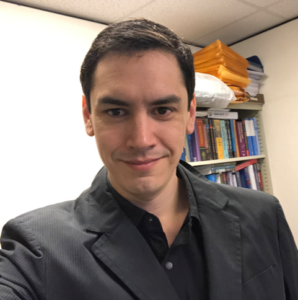
Dr. Israel Portillo, University of Houston
NuSteam – Nuclear Science in Texas to Enhance and Advance Minorities
Dr. Israel Portillo
Abstract: The NuSTEAM program is a collaborative effort by four Texas-based universities that offer an undergraduate traineeship project under the guidelines of the Department of Energy TBD-NP (Research Traineeships to Broaden and Diversify the Nuclear Physics community) initiative. The collaboration consists of the University of Houston (UH), University of Texas – Rio Grande Valley, University of Texas – El Paso and Prairie View A&M University.
In its first year, the program supported eight undergraduate students selected from those universities. The student’s training begins with a six-week summer course at UH, followed by two weeks of hands-on experience in the laboratory environment at Brookhaven National Laboratory. Upon returning to their home institutions, the program allows the students to work on selected research topics during the Fall and Spring semesters.
In this talk, I will discuss the curriculum of the program and the experiences we had during the first year. I will present the metrics applied to determine student success, and I will discuss the future of this and other related federally-funded programs.
About the Speaker: Dr. Israel Portillo received a Ph.D. in Computational Science at the University of Texas at El Paso in 2014, and a Ph.D. in Physics at the University of Houston in 2019. Dr. Israel Portillo is currently a lecturer at the University of Houston and coordinator of the NuSTEAM program.
Dr. Portillo’s research interest focuses on the study of matter under extreme conditions of temperature and density, which is related to the physics explored at relativistic heavy-ion colliders, such as the RHIC at BNL, and the LHC at CERN, as well as to the physics of compact stars.
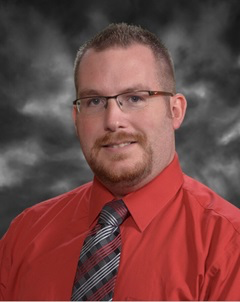
Kenric Davies, MAT – Liberty High School, Frisco ISD
Current State of Physics Education Standards in Texas
Kenric Davies, MAT – Liberty High School, Frisco ISD
Abstract: Roughly every ten years, the State Board of Education (SBOE) and the Texas Education Agency (TEA) begin a process that results in a revision or rewriting of the science education standards for K-12 grades. In an effort to create a set of standards for Texas teachers that reflect current best practices and content needs, the steps in the process included input from a wide range of people and organizations. The Texas Section of the American Association of Physics Teachers (TSAAPT) and the Science Teachers Association of Texas (STAT) provided input at various points along the revision process helping to create a new set of standards which were adopted November/December 2021 and will be implemented in the 2023-2024 school year. In this talk, I will review the overall process conducted by the TEA and SBOE, how TSAAPT and STAT influenced the process, and how the new set of standards differ from those last adopted and implemented in 2010-2011.
Banquet Speaker
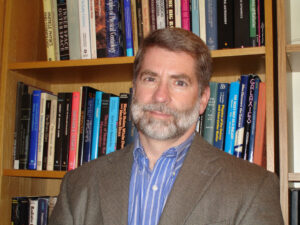
Mike Menzel, NASA Mission Systems Engineer for JWST
Mission systems Engineering of the James webb space telescope
Michael T. Menzel, NASA JWST Mission Systems Engineer
Abstract: The James Webb Space Telescope (JWST), launched on December 25, 2021, is NASA’s successor mission to the Hubble Space Telescope. JWST has been designed and developed to observe “first light” objects in the nascent universe, the evolution of galaxies over cosmic history, star birth within our own galaxy, planet formation and evolution both in our solar system and in solar systems around other stars and to make detailed observations of some of the recently discovered exoplanets. The JWST telescope has an aperture greater than 6 meters in diameter, and along with its compliment of science instruments must be cooled to cryogenic temperatures below 50K. It will be operated at the Sun-Earth L2 point to keep thermal sources such as the Sun and Earth in the same general direction so that their radiation can be shielded by a “tennis court sized” sunshield, allowing the payload to attain these temperatures passively. This presentation will give an overview of the JWST science and systems design from the perspective of the NASA Mission Systems Engineer.
About the Speaker: Mr. Menzel has 41 years of experience in the aerospace, working 23 years in industry for commercial and defense missions and for NASA for the past 18 years. He is currently the Mission Systems Engineer for the James Webb Space Telescope.
Mr. Menzel received a B.S. in Physics from the Massachusetts Institute of Technology in 1981 and an M.S. in Physics from Columbia University in 1986. He began his career in 1981 with the RCA Astro Space Division in East Windsor, N.J. as an antenna engineer, designing flight antennas for commercial and defense communications and remote sensing satellites. In 1990 he took a position in the Systems Engineering Group of the General Electric Astro Space Division designing commercial, DOD and civil space systems. In 1995 he took a position as Director of Systems Engineering in the Orbital Sciences Corporation, and in 1997 he took a position as the Deputy Program Manager for the Hubble Space Telescope Servicing Group at Lockheed Martin.
Mr. Menzel began working on the Pre-Phase studies for the Next Generation Space Telescope in 1998, and in June of 2004 he took the position as the NASA Mission Systems Engineer for the James Webb Space Telescope.
In addition to his various engineering positions, Mr. Menzel has also served as an adjunct lecturer in Physics and Astronomy at various colleges.
Mr. Menzel has been the recipient of the Robert H. Goddard Exceptional Achievement Award for Engineering in 2009, the NASA Systems Engineering Excellence Award in 2010, the Mission Engineering and Systems Analysis Division Engineering Excellence Award in 2013, the 2013 NASA Outstanding Leadership Medal and the 2020 Robert H. Goddard Merit Award. More description to come. Mike’s NASA bio is available here.
About ACU Engineering and Physics
The ACU E&P Department was started just over 50 years ago. We have a strong emphasis on undergraduate research and experiential learning in addition to offering small class sizes and strong faculty mentoring for our students. We have two major research groups the ACU Next Lab and our DOE funded nuclear research group: Atom Smashers.
Our Engineering degree was started in 2012 and is now ABET accredited. We offer industry sponsored senior clinic projects where our students work directly with companies during their final year to complete a project guided by employees from those companies and coached by our faculty.